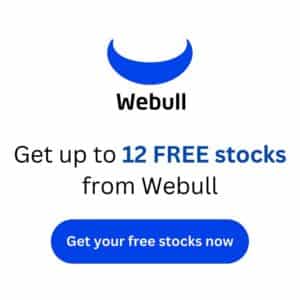When Robinhood launched in 2015, it provided three unique opportunities for those who wanted to venture into the stock market.
It became the first principal broker to allow customers to purchase or sell stock without paying a commission on the transaction. Robinhood permitted fractional share purchases, some for as little as $1.
Users could also use Robinhood’s app to simplify access to their accounts and portfolios. More than 31 million people are working with this broker for their investments, and it is easy to see why. It makes everything accessible to the average person.
That doesn’t mean people don’t have questions about the trading process. One of the biggest concerns that new traders have involves the presence of unsettled funds on Robinhood.
What Do Unsettled Funds Mean on Robinhood?
After selling a stock, the money that an account holder receives from that transaction cannot be immediately turned into a new purchase or withdrawn. It must sit in an unsettled funds state for the next two business days. That means a transaction that happens at the end of the day on Friday wouldn’t have proceeds available until at least Tuesday.
Once you sell a specific stock, the money is not immediately available to use. The Securities and Exchange Commission (SEC) mandates this waiting period.
The SEC recognizes that there needs to be time from a sale to have stock ownership and money transfer become final. Although electronic services have sped up this process in recent years, that wasn’t the case when these transactions were all paper-based.
Firms had to send documents to each other to ensure everything was correct. The SEC recognizes that improvements have occurred, so the policy since 2016 has been the time of the trade plus two business days.
When your money goes through this waiting period, you’ll see it in the unsettled funds state. That means you’ll have access to it soon, but you cannot touch it yet.
The best comparison to this state is the pending funds you can see from a recent check deposit in your savings account. You know the bank accepted it, but the institution is waiting for it to clear. You’ll get access to it eventually.
How to Check on My Unsettled Funds in Robinhood?
You can view the money in your unsettled funds in Robinhood at any time. You’ll need to open the app, then go to the “Account” tab.
That page shows how much money you’ve got in cash and stocks. Scroll to the middle of the page to fund the unsettled funds amount in your account.
Can I Withdraw Unsettled Funds?
Although you cannot withdraw unsettled funds into a bank account, Robinhood does let you use the amount for additional trades. The SEC mandates that the money stay there for the waiting period, so the broker provides up to $1,000 to those with an Instant account.
If you become a Robinhood Gold member, you can use up to $5,000 in unsettled funds to continue trading.
Cash customers don’t have this credit option. You can process a trade because Robinhood is using their money, assigned to your account, to complete the transaction. Once the unsettled funds clear, they’ll consolidate the balances so that everything evens out.
Most brokers provide this service at some level, but Robinhood makes it fast and convenient to keep trading when there’s a great deal.
Day trading is possible with some of this balance on qualifying accounts, but you must stay within the maximum allowed. If you initiate frequent trades, it’s usually better to have extra liquidity available to avoid delays.
Will Unsettled Funds Clear Over the Weekend?
Unfortunately, the money in your Robinhood unsettled funds account won’t settle during non-business days. That means the clock doesn’t tick forward during the weekend or a recognized federal holiday.
If you processed a sales transaction right as the markets closed on Friday and a holiday was scheduled for Monday, your settling time wouldn’t begin until Tuesday morning. That means you’d have access to the money for withdrawal or other trades at the end of the day on Wednesday.
You cannot withdraw unsettled funds to a traditional bank account. Once the waiting period is over, you can do whatever you want with the money in your account.
Some Robinhood traders use money in their accounts to purchase cryptocurrency. You cannot use unsettled funds to complete these transactions. If you decide to sell crypto, you’ll have immediate access to that money. There isn’t an SEC-mandated waiting period when selling that asset.
What Are the Pros and Cons of Using Robinhood?
Robinhood provides a wide range of services, but you cannot find every financial tool or option on this platform. That’s why it is essential for everyone to review the advantages and disadvantages of working with this broker before creating an account.
| List of the Pros of Robinhood | List of the Cons of Robinhood |
| Cryptocurrency trading is available on this platform. You can connect a bank account to the app, get your funding available right away, and start enjoying the added volatility that this asset offers. | Although you can find plenty of trading options to consider on this platform, you don’t have access to mutual funds or bonds. The available investments could offer more financial risk factors than some are comfortable assuming. |
| The streamlined interface users receive with the Robinhood app makes it easier to buy and sell stocks, options, ETFs, and cryptocurrency. Since there isn’t an account minimum, you can create a profile and explore until you’re comfortable with everything. | There is limited customer support when using Robinhood. Although you can get basic questions answered, this platform is more for people who already have an idea of what to expect when buying and trading stocks. |
| There are no account fees associated with your trading activities. This platform was one of the first to introduce this option to consumers, and now most of the industry provides a similar benefit. | Only taxable investment accounts are available. That means you don’t have access to the tax-advantaged retirement accounts that most American households use to build wealth. You’ll need to go elsewhere for those management options. |
| When you have an account active on Robinhood, you can take part in a company’s initial public offering. These IPOs are traditionally reserved for financial institutions, so it’s a ground-floor opportunity that hasn’t been available to the average person in the past. | Reliability can be an issue for some Robinhood traders. There have been untimely outages or restrictions implemented during times of market volatility. |
| You can quickly add ETFs to your portfolio without worrying about complicated percentages or costs when initiating the transaction. It’s included in the free portion of the services rendered. | Regulators have charged Robinhood for misleading customers about certain services and availability, which has resulted in significant fines being levied at the broker. |
Robinhood is an excellent choice for those who want to grow individual taxable accounts. You can implement trades wherever you are, and it’s much easier to handle those margin accounts.
Fees to Consider When Using Robinhood
The primary fee that users experience when using Robinhood is the ACAT. It stands for “automated customer account transfer” service, and it only occurs when you decide to transfer assets from one broker to another.
It’s not unusual for some brokers to charge a fee for transferring securities, although a few out there don’t charge anything.
Robinhood is on the upper level of this spectrum, charging $100 to transfer the stocks in your account to a competing firm.
The National Securities Clearing Corporation is responsible for the ACAT service. This process can take up to five business days to complete, but it is outside of the unsettled funds.
If you initiate an ACAT transfer, you’ll need to wait up to five business days to see your securities appear at the new brokerage. This time doesn’t start until the new agency requests the transfer.
There are rules to follow, but no one is regulating the fees that a firm charges you to make this transfer. That way, you avoid an unexpected expense when trying to make some changes to your accounts.
Do Unsettled Funds Qualify for ACAT Fees?
The ACAT service is for securities. Your unsettled funds account represents cash you’ve received after selling stocks, ETFs, or other assets.
Your cash becomes available for withdrawal in two business days after the trade. You can move this money from Robinhood to your linked bank account without a hassle.
The ACAT process involves transferring the securities from Robinhood to another provider. Although this cost is $100, some bonuses from the new agency can offset that expense.
Some brokers have even offered to offset some or all the ACAT fees a firm charges when you decide to leave.
Partial transfers don’t always come with added fees, so it helps to ask in advance to know what to expect under these circumstances.
How to Manage Your Unsettled Funds Successfully
Unsettled funds are a necessary issue when selling securities. You’ll find this account at all brokers because of the current SEC requirements. Although settlement periods are no longer a week or more, this time is still a factor in managing securities trading. It helps to have extra cash available in the account to cover this amount for frequent trades.
I got my trading career started on TD Ameritrade. Although I could have chosen any broker, I went with them because the local chapter sponsored our family’s soccer team, and we knew about half the staff personally.
When TD Ameritrade provided only services for our trading account, it felt like a game-changer. I just had to budget the $10 it cost me for each transaction, then time the sales to minimize how much was kept in the unsettled funds portion.
When Robinhood arrived in 2015, I was skeptical. It seemed like the complete opposite of what I’d come to expect from the marketplace. The lower costs were enough to convince me to give it a try, and I haven’t looked back.
Although I didn’t get in on the GameStop craze, I did see my money triple with the excitement around the viral AMC Theaters stock.
I don’t use Robinhood for my IRA or 401(k) management, but I still love the simplicity of their stock-trading platform. It’s helped me to stabilize my finances while creating growth options, and it could do the same for you.


